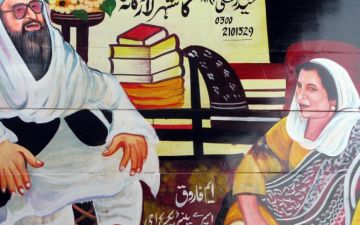In the wake of the Mumbai terror attacks and the Obama administration's announcement of troop increases in Afghanistan, Pakistan has emerged as a central front in the War on Terror. As new leaders in Washington and Islamabad struggle against a surge of Islamic militancy and growing political instability in the country, it is increasingly clear that their success will not be a question of military strategy alone. The larger challenge will be to win the hearts and minds of 170 million Pakistanis, whose lack of economic and educational opportunities and frustration with neglect by the country's political elite, threaten Pakistan's fragile stability.
Pakistan: The Battle for Hearts and Minds is a reporting project focused on education issues throughout the country, from rural madrassas to schools being built in slums for the urban poor. In a country where estimates show total literacy rates hovering at fifty percent (36% for women) and where Islamic schools—often charged with promoting religious extremism—offer the only education opportunity for many, education will be critical to Pakistan's future.
This project seeks to go beyond daily news reports on the latest bombings and military reprisals to cover instability and change in Pakistani society as a whole. We aim to introduce American audiences to the people behind the headlines and explore the complex issues of this pivotal nation. A key element of this reporting project is its innovative educational component. Students at Seattle's public high schools will read reports from the field and interact online with Pakistani students at partner schools to discuss the local and global education issues that impact their daily lives.
